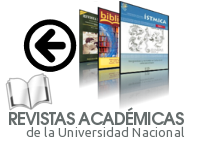History and memory in the Chilean school. Contributions from Historical Thinking to teach difficult histories
DOI:
https://doi.org/10.15359/rp.28.5Keywords:
History teaching, memory, Social Studies, historical thinking, ChileAbstract
From a set of theoretical contributions elaborated by Dr. Peter Seixas in a limited time span (2000-2018), we propose to think and discuss about the teaching of history in Chile, in the context of the commemoration of the 50th anniversary of the civil-military coup of September 1973. Seixas’ work is used as a frame of reference focusing on the model of Historical Thinking and as a valuable experience of democratic and critical intellectuality. The Chilean case is presented in its essential curricular aspects and the ideas that emerge in the classroom are shown through three examples of narratives of the recent past elaborated by high school students. The conclusions take up classic works by Seixas to rethink both nationally and globally the challenges for history education in a new era characterized by the rise of dangerous extreme right-wing populisms.
References
Aceituno, R. & Valenzuela, R. (Comps,). (2013). Golpe 1973-2013. LAPSOS; El Desconcierto.
Areyuna, B. & González, F. (2004). Contextualizando el curriculum de historia y ciencias sociales. La comunidad local, un territorio de saberes para la escuela. Ministerio de Educación de Chile.
Barca Oliveira, M. I. (2013). Conciencia histórica: Pasado y presente en la perspectiva de los jóvenes en Portugal. Clío & Asociados. La historia enseñada, 17, 16-26.
Buriano, A., Dutrénit, S., & Vásquez, D. (Edits). (2015). Política y memoria. A cuarenta años de los golpes de Estado en Chile y Uruguay. Flacso.
Comisión Nacional sobre Prisión Política y Tortura. (2004). Informe de la Comisión Nacional sobre Prisión Política y Tortura.
Consejo Nacional de Educación. (2013). Acuerdo n.° 70. CNED.
Corporación Nacional de Reparación y Reconciliación. (1996). Informe de la Comisión Nacional de Verdad y Reconciliación.
Cuesta, R. (1998). Clío en las Aulas. La enseñanza de la historia en España entre reformas, ilusiones y rutinas. Akal Ediciones.
Cuesta, R. (2007). Los deberes de la memoria en la educación. Octaedro - Ministerio de Educación y Ciencia.
Del Pozo, J. (2023). Historia de Chile. La construcción de una sociedad desigual. LOM Ediciones.
Epstein, T. & Peck, C. L. (2017). Teaching and learning difficult histories in international contexts a critical sociocultural approach. En T. Epstein & C. L. Peck (Eds.), Teaching and Learning Difficult Histories in International Contexts: A Critical Sociocultural Approach. Taylor and Francis. https://doi.org/10.4324/9781315203591
Garcés, J. (2013). Las armas de la política. Siglo XXI - Hueders.
Gazmuri, R. (2017). Ideologías curriculares en el debate y negociación del currículum chileno de Historia, Geografía y Ciencias Sociales. Estudios Pedagogicos, 43(1), 157–169. https://doi.org/10.4067/S0718-07052017000100010
González, F. (2013). Las fronteras que se abren: Memoria histórica, territorios locales, lugares para el futuro. En I. Muñoz & L. Osandón (Eds.), La didáctica de la historia y la formación de ciudadanos en el mundo actual. Dirección de Bibliotecas Archivos y museos / Centro de Investigaciones Diego Barros Arana.
González, F. (2020). El efecto dominó. Narrativas históricas en torno a la dictadura y la democracia en Chile vistas por tres generaciones. Clío & Asociados. La historia enseñada, 30. https://doi.org/10.14409/cya.v0i30.9035
González, F. & Areyuna, B. (2014). Pedagogía, historia y memoria crítica. Una mirada educativa a los discursos y lugares de la memoria. Facultad de Pedagogía - Universidad Academia de Humanismo Cristiano.
González, F. & Gatica, E. (2017). Los jóvenes y la historia: Perspectivas de estudiantes secundarios chilenos en torno al aprendizaje histórico del gobierno de la Unidad Popular y la dictadura militar. Clío & Asociados. La historia enseñada, 20/21, 52–66. https://doi.org/10.14409/cya.v0i20/21.6513
González, F. & Rubio, G. (2022). Education, history, and memory in the Chilean school. A perspective on Chile’s recent history from the narratives of high school students. En S. Plá & W. E. Ross (Eds.), Social Studies Education in Latin America Critical Perspectives from the Global South (pp. 37-51). Routledge.
Grez, S., & Salazar, G. (1999). Manifiesto de Historiadores (S. Grez, & G. Salazar, Eds.). Lom.
Hartog, F. (2014). Creer en la historia. Ediciones Universidad Finis Terrae.
Hobsbawm, E. J. (2013). Un tiempo de rupturas: Sociedad y cultura en el siglo XX. Crítica.
Lazzara, M. J. (2007). Prismas de la memoria: Narración y trauma en la transición chilena. Editorial Cuarto Propio.
Lee, P. (2004). ‘Walking Backwards into Tomorrow’: Historical Consciousness and Understanding History. International Journal of Historical Learning, Teaching and Research, 4(1).
Lee, P. (2011). History education and historical literacy. En Ian Davies (Ed.), Debates in History Teaching (pp. 63-72). Routledge.
Martín-Barbero, J. (2015). Estéticas de comunicación y políticas de la memoria. Calle 14: Revista de Investigación en el Campo del Arte, 10(17), 14–33. https://doi.org/https://doi.org/10.14483/udistrital.jour.c14.2015.3.a02
McCully, A. (2010). What Role for History Teaching in the Transitional Justice Process in Deeply Divided Societies? En I. Nakou & I. Barca (Eds.), Contemporary Public Debates Over History Education: A volume in International Review of History Education. (pp. 169-184). IAP - Information Age Publishing.
McCully, A. (2012). History teaching, conflict and the legacy of the past. Education, Citizenship and Social Justice, 7(2), 145-159. https://doi.org/10.1177/1746197912440854
Ministerio de Educación. (2009). Objetivos Fundamentales y Contenidos Obligatorios de la Educación Básica y Media. MINEDUC, CHILE.
Ministerio de Educación. (2015). Bases Curriculares 7.° básico a 2° medio. MINEDUC, CHILE - Unidad de Curriculum y Evaluación.
Oteíza, T. (2003). How contemporary history is presented in Chilean middle school textbooks. Discourse and Society, 14(5), 639-660. https://doi.org/10.1177/09579265030145005
Oteíza, T., Henríquez, R., & Pinuer, C. (2015). History classroom interactions and the transmission of the recent memory of human rights violations in Chile. Journal of Educational Media, Memory, and Society, 7(2), 44–67. https://doi.org/10.3167/jemms.2015.070204
Reyes, L. (2004). Actores, conflicto y memoria: Reforma curricular de historia y ciencias sociales en Chile, 1990–2003. En E. Jelin & F. Lorenz (Eds.), Educación y memoria. La escuela elabora el pasado (pp. 65-93). Siglo XXI Editores.
Rojas, M. T. & Vargas, D. (2013). La enseñanza del golpe de Estado y la dictadura en Chile: Un diálogo entre historia y memoria. Cuadernos de Educación, 55, 1-7.
Rousso, H. (2018). La última catástrofe. La historia, el presente, lo contemporáneo. Editorial Universitaria / Dirección de Bibliotecas, Archivos y Museos.
Rubio, G. (2013). Memoria, política y pedagogía. Los caminos para la enseñanza del pasado reciente en Chile. Lom.
Rubio, G. & González, F. (2023). Narrativas históricas de jóvenes e historia reciente en Chile: Aproximaciones deshistorizadas, fragmentadas y polarizadas en la escuela pública. Tempo e Argumento, 15(38), e0103. https://doi.org/https://doi.org/10.5965/2175180315382023e0103
Rüsen, J. (2004). Historical consciousness: Narrative structure, moral function, and ontogenetic development. En Theorizing Historical Consciousness (pp. 63-85). University of Toronto Press.
Rüsen, J. (2007). How to make sense of the past – salient issues of Metahistory. The Journal for Transdisciplinary Research in Southern Africa, 3(1). https://doi.org/10.4102/td.v3i1.316
Salazar, G. (2003). La historia desde abajo y desde dentro. Facultad de Artes - Universidad de Chile.
Salazar, G. (2013a). Demostraciones ciudadanas: ¿Masas o soberanía? En Dolencias históricas de la memoria ciudadana (Chile, 1810-2010) (pp. 151-160). Universitaria.
Salazar, G. (2013b). Holocausto y totalitarismo en el Cono Sur: Dos siglos de daño transgeneracional. En Dolencias históricas de la memoria ciudadana (Chile, 1810-2010) (pp. 25-35). Universitaria.
Salazar, G. (2013c). Villa Grimaldi (Cuartel Terranova) Volumen I. Historia, testimonio, reflexión. LOM Ediciones.
Schmidt, M. A. (2005). Jóvenes brasileños y europeos: Identidad, cultura y enseñanza de la historia (1998-2000). Enseñanza de las ciencias sociales: revista de investigación, 4, 5364.
Seixas, P. (1997). Mapping the terrain of historical significance. Social Education, 61(1), 22–27. http://www.socialstudies.org/sites/default/files/publications/se/6101/610105.html
Seixas, P. (2000). Schweigen! Die kinder! or, Does Postmodern History Have a Place in the Schools? En S. Stearns, P., Seixas P., Wineburg (Ed.), Knowing teaching & Learning history: National and International Perspectives (pp. 19-37). Taylor & Francis.
Seixas, P. (2004). Introduction. En P. Seixas (Ed.), Theorizing historical consciousness (p. 255). University of Toronto Press.
Seixas, P. (2007). Who Needs a Canon? En S. Grever, M.; Stuurman (Ed.), Beyond the Canon: History for the Twenty-First Century (pp. 19–30). Palgrave Macmillan. https://doi.org/10.1057/9780230599246_2
Seixas, P. (2012). Progress, presence and historical consciousness: Confronting past, present and future in postmodern time. Paedagogica Historica, 48(6), 859–872. https://doi.org/10.1080/00309230.2012.709524
Seixas, P. (2013). Historical agency as a problem for researchers in History Education. Antíteses, 5(10). https://doi.org/10.5433/1984-3356.2012v5n10p537
Seixas, P. (2018a). Education-Between History and Memory. En T. Epstein & C. L. Peck (Eds.), Teaching and Learning Difficult Histories in International Contexts. A critical sociocultural approach. Taylor and Francis.
Seixas, P. (2018b). Foreword: History Educators in a New Era. En S. A. Metzger & L. M. Harris (Eds.), The Wiley International Handbook of History Teaching and Learning (pp. xiii–xix). Wiley. https://doi.org/https://doi.org/10.1002/9781119100812.fmatter
Seixas, P. (2018c). History in schools. En B. Bevernag & N. Wouters (Eds.), The Palgrave handbook of State-Sponsored history after 1945 (pp. 273–288). Palgrave Macmillan.
Seixas, P., & Morton, T. (2013). The Big Six Historical Thinking Concepts. Nelson Education.
Seixas, P., & Peck, Carla. (2004). Teaching historical thinking. En A. Sears & I. Wright (Eds.), Challenges and Prospects for Canadian Social Studies (pp. 109-117). Pacific Educational Press.
Stern, S. J. (2000). De la memoria suelta a la memoria emblemática: Hacia el recordar y el olvidar como proceso histórico. En M. Garcés, P. Milos, M. Olguín, J. Pinto, M. T. Rojas, & M. Urrutia (Eds.), Memorias para un nuevo siglo. Chile. Miradas a la segunda mitad del siglo XX (pp. 11-33). Lom.
Stern, S. J. (2009). Luchando por mentes y corazones. Las batallas de la memoria en el Chile de Pinochet. Ediciones Universidad Diego Portales.
Traverso, E. (2019). Interpretar la era de la violencia global. Nueva Sociedad, 280, 163-179.
Valdivia, V. (2003). El golpe después del golpe. Leigh vs. Pinochet. Chile 1960 - 1980. Lom.
Valdivia, V., Álvarez, R., & Pinto, J. (2006). Su revolución contra nuestra revolución. Izquierdas y derechas en el Chile de Pinochet (1973-1981). Lom.
Wertsch, J. V. (2002). Voices of the collective remembering. Cambridge University Press.
Wertsch, J. V. (2008). The narrative organization of collective memory. Ethos, 36(1), 120-135. https://doi.org/10.1111/j.1548-1352.2008.00007.x
Winn, P., Stern, S. J., Lorenz, F., & Marchesi, A. (2014). No hay memoria sin ayer. Batallas por la memoria histórica en el Cono Sur. Lom.
Zúñiga, C. G., O’Donoghue, T., & Clarke, S. (2015). A Study of the Secondary School History Curriculum in Chile from Colonial Times to the Present. Sense Publishers.
Downloads
Published
How to Cite
Issue
Section
License

This work is licensed under a Creative Commons Attribution-NonCommercial-ShareAlike 4.0 International License.
Los autores que publican en esta revista están de acuerdo con los siguientes términos:
a) Los autores conservan los derechos de autor y garantizan a la revista el derecho de ser la primera publicación del trabajo bajo una Licencia Creative Commons Atribución-NoComercial-CompartirIgual 4.0 Internacional (https://creativecommons.org/licenses/by-nc-sa/4.0/) que permite a otros compartir el trabajo con un reconocimiento de la autoría del trabajo y la publicación inicial en esta revista (componente BY o atribución). Coincidente con la política de Acceso Abierto, no se podrán hacer usos comerciales de los contenidos publicados por esta revista (componente NC). Se permitirán las obras derivadas (remezcla, transformación o creación a partir de la obra original) siempre y cuando sean distribuidas bajo la misma licencia de la obra original (componente SA).
b) Los autores pueden establecer por separado acuerdos adicionales para la distribución no exclusiva de la versión original de la obra publicada en la revista (por ejemplo, situarlo en un repositorio institucional o publicarlo en un libro), siempre y cuando: a) sea reconocida la publicación original en esta revista (componente BY); b) no se haga uso del material de reuso con propósitos comerciales (componente NC); c) el material de reuso sea distribuido bajo la misma licencia de la obra original (componente SA).
c) Se permite y se anima a los autores a difundir sus trabajos electrónicamente (por ejemplo, en repositorios institucionales o en su propio sitio web) antes y durante el proceso de envío, ya que puede dar lugar a intercambios productivos, así como a una citación más temprana y mayor de los trabajos publicados (Véase The Effect of Open Access) (en inglés).


_11.55_.09_a_._m_._.png)
_1.34_.01_p_._m_._2.png)
_9.45_.02_p_._m_._.png)




_2.23_.09_p_._m_._.png)
_2.35_.17_p_._m_._.png)

